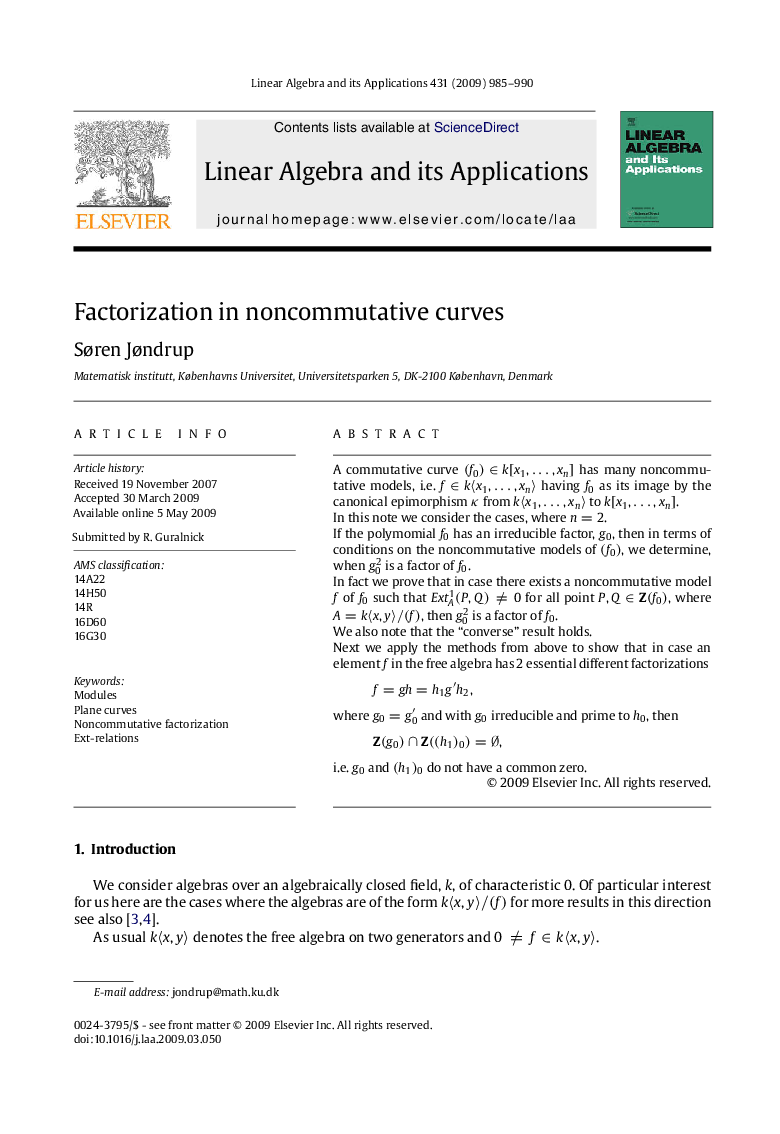| Article ID | Journal | Published Year | Pages | File Type |
|---|---|---|---|---|
| 4602478 | Linear Algebra and its Applications | 2009 | 6 Pages |
A commutative curve (f0)∈k[x1,…,xn](f0)∈k[x1,…,xn] has many noncommutative models, i.e. f∈k〈x1,…,xn〉f∈k〈x1,…,xn〉 having f0f0 as its image by the canonical epimorphism κκ from k〈x1,…,xn〉k〈x1,…,xn〉 to k[x1,…,xn]k[x1,…,xn].In this note we consider the cases, where n=2n=2.If the polymomial f0f0 has an irreducible factor, g0g0, then in terms of conditions on the noncommutative models of (f0)(f0), we determine, when g02 is a factor of f0f0.In fact we prove that in case there exists a noncommutative model ff of f0f0 such that ExtA1(P,Q)≠0 for all point P,Q∈Z(f0)P,Q∈Z(f0), where A=k〈x,y〉/(f)A=k〈x,y〉/(f), then g02 is a factor of f0f0.We also note that the “converse” result holds.Next we apply the methods from above to show that in case an element ff in the free algebra has 22 essential different factorizationsf=gh=h1g′h2,f=gh=h1g′h2,where g0=g0′ and with g0g0 irreducible and prime to h0h0, thenZ(g0)∩Z((h1)0)=∅,Z(g0)∩Z((h1)0)=∅,i.e. g0g0 and (h1)0(h1)0 do not have a common zero.
